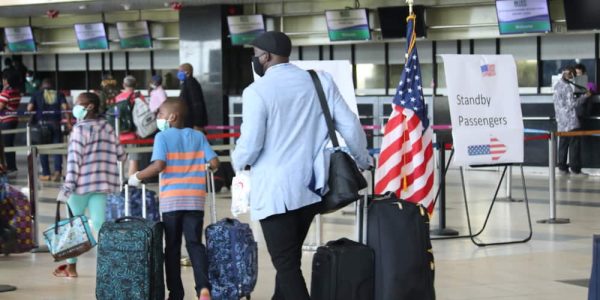Canada updates post-graduation work permit rules for international students… here’s all to know

US Slams New Visa Rule on Nigerians: Single Entry, 90-Day Stay Now in Effect
The Government of Canada has introduced a significant update to its Post-Graduation Work Permit (PGWP) program, particularly affecting international students enrolled in non-degree programs. The new changes, announced by Immigration, Refugees and Citizenship Canada (IRCC) on June 25, 2025, are designed to better align study permits and work opportunities with the country’s labour market demands.
Under the revised policy, international students who submit study permit applications on or after November 1, 2024, and are pursuing non-degree programs such as diplomas or certificates, must now graduate from one of the IRCC’s approved fields of study to be eligible for the PGWP. The list of eligible fields has been updated to reflect Canada’s current and projected labour market needs.
In total, 119 new fields of study have been added to the eligibility list. These include disciplines in healthcare, early childhood education, developmental service work, social services, skilled trades, and other high-demand sectors. At the same time, 178 fields of study were removed from eligibility, including many in construction, agri-food, transport, and even some within STEM disciplines that no longer align with long-term labour priorities.
READ ALSO
Japa: Is travelling abroad more profitable than starting a business in Nigeria?
Thinking japa? Here are UK companies licensed to sponsor work
Japa: 10 errors to avoid if you’re considering relocation
It’s important to note that this new requirement does not apply to students who are enrolled in bachelor’s, master’s, or doctoral degree programs. Graduates from these academic levels remain fully eligible for the PGWP regardless of their field of study. However, they must now meet a minimum language proficiency level of CLB/NCLC 7. For non-degree program students, the required language proficiency is CLB/NCLC 5.
Another key point is that students whose study permits were approved before November 1, 2024, will not be affected by the new field-of-study rule. These students will remain eligible for PGWP regardless of whether their program is included in the updated list. This provision helps ease the transition for students who have already made academic commitments based on previous rules.
Earlier in March 2025, the IRCC also reversed a 2024 decision that had applied field-of-study restrictions to college-level bachelor’s and master’s degrees. This change reinstated full eligibility for those students and placed them on equal footing with university degree holders. This move was widely praised by education stakeholders, who had criticized the earlier restrictions as unfair and damaging to Canada’s international education reputation.
Despite these efforts to streamline the system, concerns remain among stakeholders in certain sectors. Critics argue that the removal of fields related to agriculture, construction, data science, and logistics may not reflect the workforce realities in many Canadian provinces, where such skills are still in demand. Several education advocacy groups have urged the IRCC to review the policy’s impact over the coming months.
Overall, the changes represent a broader effort by the Canadian government to connect international education with long-term economic goals. For prospective international students, especially those considering non-degree programs, this update means carefully choosing a course of study that not only meets personal goals but also aligns with IRCC’s approved list of occupations in demand. Students are strongly encouraged to review the official list of eligible programs and CIP codes, available on the IRCC website.

